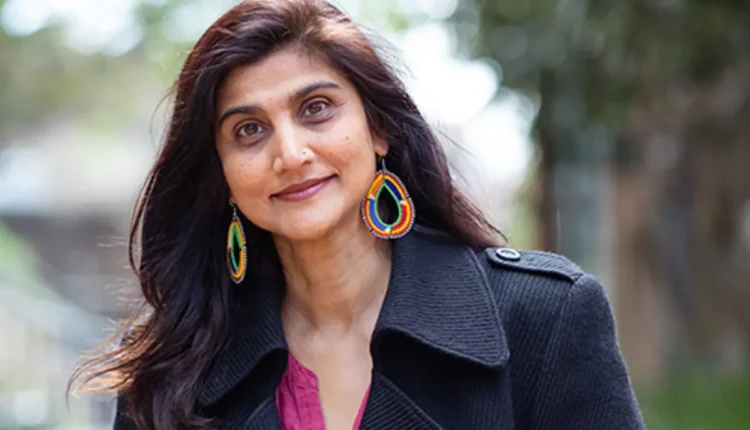Sadiyya Shaikh, a South African scholar of Islam and feminist theory, has emerged as a powerful and influential voice in the world of religious studies. Born in 1969 in Krugersdorp, South Africa, into a society under the harsh grip of apartheid, Shaikh’s life experiences propelled her into a unique path that merges Islam with feminist theory.
Today, Sadiyya Shaikh serves as a professor of religion at the University of Cape Town, where her work on gender, Sufism, and feminist interpretations of Islamic texts offers a liberating perspective for women in Islam. Her journey is one of resilience, intellect, and a deep commitment to justice and equality.
Early Life and Influences of Sadiyya Shaikh
Growing up in the racially segregated environment of apartheid South Africa profoundly shaped Sa’diyya Shaikh’s worldview. Born to Indian Muslim parents, her early life exposed her to the anti-apartheid movement and the fight for social justice.
Witnessing these struggles first-hand inspired her to delve into Islam in search of interpretations that aligned with the liberation she saw in her society’s fight for equality. This desire to explore Islam’s capacity for social justice motivated her lifelong quest to reconcile faith and feminism.
Shaikh’s academic journey began with a Fulbright PhD Scholarship, allowing her to study at Temple University in the United States, where she completed her PhD in 2004. Her doctoral work laid the foundation for her to become a leader in feminist interpretations of Islam.
Contributions to Feminist Theory and Islamic Scholarship
Shaikh’s scholarly contributions cover a wide array of topics, with a primary focus on gender in Islam, Sufism, and feminist approaches to the Qur’an and hadith. Her writings offer new insights into Muslim women’s experiences and challenge traditional readings of Islamic texts by highlighting how deeply embedded gender hierarchies can be. Shaikh’s work is a breath of fresh air, showcasing that Islam is not static but can evolve to meet the needs of contemporary gender justice.
One of her most important works, Sufi Narratives of Intimacy: Ibn ‘Arabi, Gender, and Sexuality, reflects Shaikh’s deep engagement with the thought of Ibn ‘Arabi, a 12th-century Sufi mystic. In this book, Sadiyya Shaikh examines Ibn ‘Arabi’s teachings on gender and sexuality from a feminist lens, offering a re-interpretation that promotes gender equality within an Islamic framework. Through this work, Shaikh underscores the potential for Sufism to provide pathways for feminist ethics within Islam.
Bridging Sufism and Feminism
One of the remarkable aspects of Sadiyya Shaikh’s work is her ability to blend Sufism—a mystical branch of Islam—with feminist theory. Sufism, with its focus on spiritual introspection and the cultivation of the self, provides a rich source for alternative understandings of gender, love, and intimacy. In her work, Shaikh explores how Sufi principles can contribute to modern feminist thought, providing Muslim women with a way to reconcile their faith with feminist values.
In Sufi Narratives of Intimacy, Shaikh draws on Ibn ‘Arabi’s concept of divine love, portraying it as a potential tool for liberating women from patriarchal structures. By looking at love not just as a spiritual experience but also as a transformative human experience, she presents new ways of viewing marriage, sexuality, and human relationships within an Islamic framework.
Advocacy for Muslim Women’s Rights
Beyond her academic work, Sadiyya Shaikh is an active advocate for Muslim women’s rights. She has contributed significantly to the work of Musawah, a global movement for justice and equality in the Muslim family. Through her involvement in community forums and regular presentations at the Claremont Main Road Mosque, she has made tangible contributions to the empowerment of Muslim women.
Shaikh’s khutbahs (sermons) featured in The Women’s Khutbah Book: Contemporary Sermons on Spirituality and Justice from Around the World offer insights into her commitment to justice, spirituality, and gender equality.
One of her khutbahs, “Divine Love, Human Love: Marriage as Heart-Cultivation,” reflects her approach to merging feminist ethics with Islamic teachings. Sadiyya Shaikh envisions marriage as a space for spiritual and emotional growth, challenging the conventional patriarchal structures often associated with marriage in Islamic law.
A Global Scholar and Leader
Throughout her career, Sadiyya Shaikh has received numerous accolades for her pioneering work. She was a research fellow at the prestigious Wissenschaftskolleg zu Berlin: Centre for Advanced Study in 2016-2017, where she worked on a project titled “Gender, Justice and Muslim Ethics.” Sadiyya Shaikh was also a fellow at the Stellenbosch Institute for Advanced Studies (STIAS) in 2020, further solidifying her reputation as a leading scholar on Islam and feminism.
Her publications continue to shape debates around Islam and gender. Her co-edited book Violence Against Women in Contemporary World Religions: Roots and Cures investigates the relationship between religion and gender-based violence, offering critical reflections on how religious traditions can be both a source of oppression and a path to healing for women.
Currently, she is working on a new book titled The Breath of Merciful: Jamali Ethics, Gender, and Spirituality, which promises to be another significant contribution to both Islamic and feminist scholarship.
Also Read:Fatima Seedat: A Voice for Women’s Rights and Justice in Islamic Law

